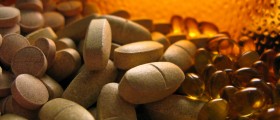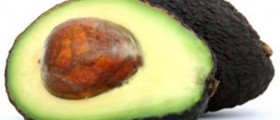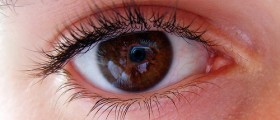
Healthy nutrition is necessary to provide cells and organisms with important materials to support life. Healthy and diverse diet can actually prevent and alleviate many health problems. Diet that consists of well balanced foods can prevent some of the most significant health risks, such as obesity, coronary heart disease, diabetes and cancer. A healthy diet consists of eating adequate amounts of all nutrients, and an appropriate daily intake of water. Healthy diet has well balanced macronutrients and energy, and it should be free from any toxicity from excessive amounts. The healthy diet standards are formulated for the general population, but some specific diets can promote a better health for people suffering from various conditions. For example, people with high blood pressure will benefit from low sodium diets. Here is a quick review of some of the most important nutritional elements of food.
Carbohydrates
Carbohydrates consist of sugars, starches and fibers that are very common in most foods. They are the body's primary source of energy, but they also regulate the digestion, aid in the communication between the cells and support the functions of the immune system. Carbohydrates are made from carbon, hydrogen and oxygen, arranged into small sugar units, known as monosaccharides. If these molecules contain only one or two units they are called “simple sugars”. These sugars are easy to digest, and they provide instant energy refill to the body. Complex sugars are composed of twenty or more monosaccharides, and the body can’t metabolize them as quickly as the simple carbohydrates. Complex carbs increase the blood glucose levels more slowly, preventing the rapid oscillations in blood sugar levels. Complex carbs are usually found in breakfast cereals, bread, potatoes, pasta and rice.
Fats
Fats are nutrients with very bad reputation but these nutrients are not always bad. Some of the fats are very beneficial, or even essential, for human health. Fats are important for the absorption of certain vitamins such as essential vitamin A, vitamin D, vitamin E and vitamin K. They are also a storehouse of energy for the body. Unsaturated fats, usually from herring, tuna, sardines, salmon and some vegetable oils and nuts, can help to provide certain essential nutrients such as fatty acids. These compounds are required for normal body functioning, but they cannot be synthesized by the body at all. Humans need to obtain essential fatty acids through the diet.
Vitamins
Vitamins are also organic compounds necessary in the diet, that cannot be synthesized by an organism but must be obtained from the diet. Some of the vitamins are water soluble, and they are easily excreted by the body in the process or urination. Others are fat soluble, and the human body can store the excess amount for later use. Vitamins are essential for the normal growth and development of a multi-cellular organism. They facilitate the growth and function of the skin, bones and muscles, fight against free radicals and boost the immune system.
Fiber
Fibers are the indigestible portion of plant foods that act by changing the composition of the contents of the gastrointestinal tract, and the way other important nutrients are absorbed. They prevent cardiovascular diseases and promote healthy digestion.
Water
Water is essential for every living being. The human body contains anywhere from 55% to 78% of water depending on the body size. An average human being needs about eight glasses of water per day.
- www.womenshealth.gov/healthy-eating
- www.nutrition.gov/
- Photo courtesy of Cat by Wikimedia Commons: commons.wikimedia.org/wiki/File:Food!_(2270461019).jpg














_f_280x120.jpg)


Your thoughts on this
Loading...